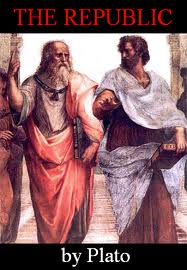 He made the rounds of the book fair, dragged here on a rainy day by his wife, no doubt. You could see the poor guy stopping by each table, examining the bright covers of historical novels, children’s books, chick lit, vampire sagas, young adult readers. A frown on his face. “What do you have here?” “These are my novels,” I said. “Sorry, I don’t read fiction.” Oh, He still read some, even books, but he liked the facts, definitely non-fiction. He liked it served straight-up, no agenda, no ax being ground in the background. Retired engineer from New York, now 83, he read the Wall Street Journal religiously for the news, you know. No axes grinding away there, of course. What do you say to a man in possession of all the facts? “I don’t want to argue with you, but sometimes you guys take liberties with the truth.” Still, he shook my hand when I admitted my day job was as a business journalist, even with the mainstream liberal media, a step up, I suppose, from pure fictioneer. We didn’t tread into the political, nor come to any blows. He knew he was in the South, where fighting words aren’t hard to find. Oh, he done his time with fiction back in school, read plenty of novels back then. At 83, he wanted efficiency, not folderol or tomfoolery. And yes, I understood how he may have tired of fiction, the usual boy meets girl, good guys fighting bad guys, boy finding father figure, narrative arcs all done up in neat bows by the end, the tired plots recycled now by Hollywood comic books come to sad 3-D life on the big screen. My retired engineer is no anomaly. He has a proud pedigree in his Puritan distrust of the lies that make up literature. Plato was ready to kick out the poets from his perfect society, if they weren’t going to pull their weight in the pursuit of higher Truths. But the facts can get in the way, and in our time, often get rearranged to coincide with an idealogue’s particular agenda. No less a literature lover than Stalin explained, “The death of one is a tragedy, the death of a million is a statistic.” Funny how totalitarian regimes made sure to imprison and execute the poets rather than the engineers. So what to say to the guy who reads no novels, fancies no fictions other than his own assumptions? Good luck, buddy, and move along. That’s not what I’m after when I read or write a novel. For me, fiction always aims beyond all those unfeeling facts and cold statistics, tells me things I don’t know, not the things I think I already know. I first was inspired to write by Thomas Wolfe, who nailed exactly how it felt like to grow up in a stifling small town, sensing “the buried life” underfoot with each step of the familiar sidewalk, or seeing the stone angels walk the streets of his town at night. Or David Foster Wallace, not exactly a slacker when it came to the IQ department (here was a guy who did a treatise on infinity). DFW had it right: fiction is about “what it feels like to be a human being.” I hope my retired engineer found himself a good book, telling himself all the stories he wants to hear.
1 Comment
 (I'm reposting this blog which first appeared at "Beyond the Margins," thanks to my pal and a very fine writer, Robin Black). Dante Alighieri was deep in the woods, a failed politico exiled from his beloved Florence, flailing through his mid-30s and a mid-life crisis, before he found the way, punching his ticket to hell, purgatory, heaven and of course literary immortality with The Divine Comedy. I, too, was in the woods, an unpublished fiction writer about to turn 45 when I figured out the wrong fork I had taken in my novel more than ten years before. Talk about a slow learner, but I think most novelists fall into that club - quick studies of human foibles who plod through seemingly endless drafts before they arrive at a well-made book. I still remember the day I started writing my first novel. It was a sunny morning in mid-January, 1989. My walking stick leaned by my desk, a souvenir of time served in the workshops of Warren Wilson College where I earned my MFA. I clicked open a new file on my Commodore 12 PC and commenced. I had spent the previous three years, studying and dissecting and attempting to write short stories, which seemed like stepping stones or way stations toward the big novel, which I now felt brave enough or foolhardy enough to undertake. Now, there would be no supervisor, no feared teacher guide, to tell me what I was doing wrong. By late summer, I had typed the last of 400 pages. I still recall that instant of exaltation. I had done it, written a thing that resembled a real novel. Now, just to work through a few drafts, polish up the prose, and I would be on my way to the Big Time. I finally shipped it off to a New York agent around 1992. The manuscript miraculously made it out of the slush pile onto her desk, and she sent it back with the thought, “Cut 100 pages, I’ll take another look.” I was horrified. Writers at first resist. Writers at last do what’s necessary. Henry James once wrote to an editor who requested three lines cut from a 5,000- word article. “I have performed the necessary butchery. Here is the bloody corpse.” I shrugged off the chip on my shoulder and did the deed. Another year and I resent the revised manuscript. She signed me. That should have been the end of the story, where the writer lives happily ever after, or so I thought. The agent sent the book out to eighteen major houses and could not sell it in New York. We parted ways around 1995, and I despaired of ever publishing a book, but I did what writers do: I kept writing. I could feel my life passing me by at the desk. No book to my name out in the world, but to my credit, I kept piling up words and pages and drafts. In 2003, I was hiking the Mountain-to-Sea Trail in the Black Mountains above Asheville. An elevation around 5,000 feet, the forest edging toward the boreal, always does wonders to clear my head. I came across a grove of cedars that never fails to remind me of pencil shavings and Hemingway’s wonderful evocation of the writing life from A Moveable Feast. Hemingway liked writing at the cafe when “some days it went so well that you could make the country so you would walk through it… Even when the pencil broke and you had to stop to sharpen the point again, then slip your arm through the sweat-salted leather of your pack- strap to lift the pack again, get the other arm through and feel the weight settle on your back and feel the pine needles under your moccasins as you started down for the lake.” Stepping into that sun-dappled grove, I met my moment of inspiration, my Muse, or at least realized what was needed to resuscitate that first novel. At age 31, I had tried to imagine a man 10 years older than me and how he would react to the loss of his family farm, putting his aging mother into a nursing home, while suspecting his wife of cheating on him with her spiritual confessor. Royce Wilder was his name, but a decade of hindsight, he seemed whiny and adolescent in his actions, not nearly as grownup as his circumstances demanded. But not to blame Royce, he was perhaps too accurate a projection of the author as a younger man. When I started typing in 1989, I simply lacked the imagination or life experience to know his plight or put it convincingly on the page. My insight on the trail was that I suddenly understood that Royce needed his own adolescent son. In essence, the novel demanded that I clone a single character into two. It took several more drafts before I settled on Dean Wilder, age 14, who’s taken up graffiti and smoking a little dope in his own quest to find himself. Introducing another character changed the whole trajectory of the novel, the plot, the ending, everything. In 2009, I published my “first” novel Cow across America, winner of the Novello Literary Award. That actually was the third book I had written. In April, The Half-Life of Home makes its debut. I’m now a decade older than my main character, and he seems young to me again. It’s been 25 years now since I’ve started my apprentice novel. I’ve come to understand there’s no steady climbing of some career ladder in literature. You go only as high as the stack of pages you pile up in the desk drawers or virtually on hard drives, online reaching to the Cloud. Now nearing my 55th birthday, mathematically well past Dante’s midlife quest, I’m still feeling my way along. In our culture, we always want morals with our stories, a leavening of education with our entertainment. I’m not sure what I’ve really learned about making novels, other than it takes time. But then that’s the beauty of the form itself, a way of watching characters grow and change over fictional years, decades, lifetimes. Writing a novel? It’s a walk in the woods. |
Dale NealNovelist, journalist, aficionado of all things Appalachian. Archives
April 2023
Categories
All
|
|
© Dale Neal 2012. All rights reserved.
|
Asheville NC Contact
|
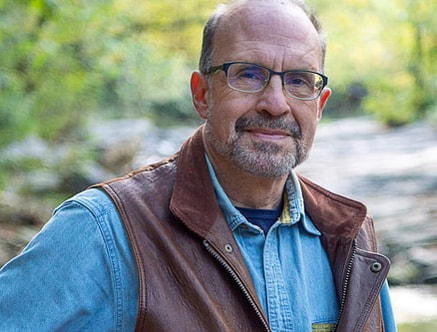
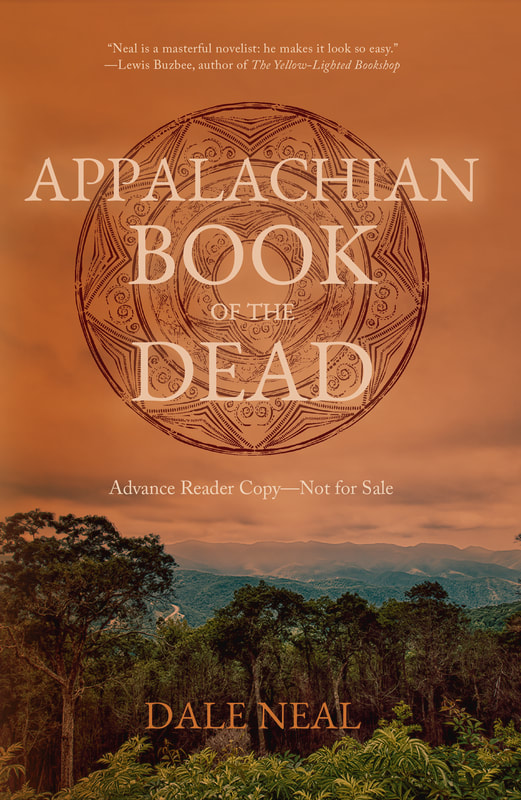
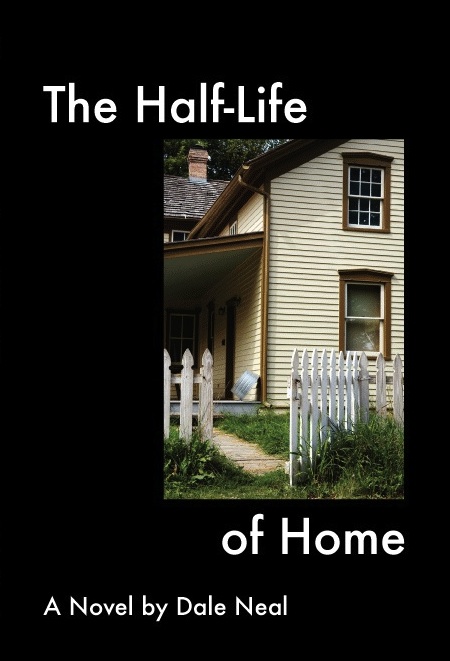
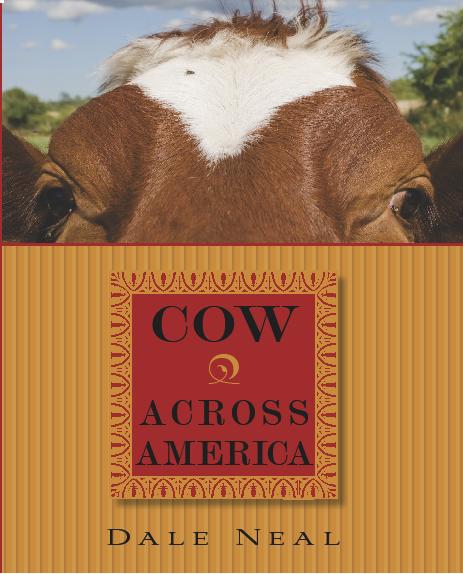
 RSS Feed
RSS Feed